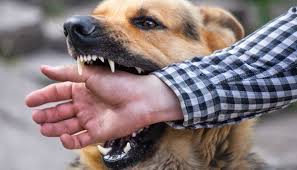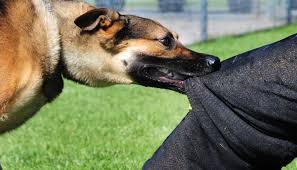What kind of lawyer handles dog bites?
Most personal injury lawyers should be able to handle a dog bite injury case, and you typically don’t need to worry about finding an attorney who specializes in “dog bite defense” cases as opposed to one who handles work on the plaintiff’s side.
Familiarity with general fault concepts like negligence and with the specific rules that might govern dog bite cases in your state should be sufficient, and most qualified injury attorneys should have that, at a minimum.
You may be wondering how a personal injury attorney might be compensated if you decide to hire one to defend against a dog bite lawsuit. In many situations, your homeowners’ insurance policy will kick in to cover the costs of defending a lawsuit over a dog bite, especially when it occurred on your property. So the insurance carrier should pay your legal costs, and the insurer may even choose a lawyer to defend against the claim. (Learn more about personal injury cases and homeowners’ insurance.)
There may be a few valid arguments you (and your attorney) can raise in response to a claim that your dog bit and injured someone. In states that follow a “one bite rule,” you may be able to argue that you did not know (and could not have reasonably been expected to know) that your dog might end up biting someone. You might also be able to defend against the injury claim by showing that the person who was bitten was actually provoking your dog, or that the person was trespassing on your property at the time the bite occurred. Learn more about defense strategies in dog bite cases.

Getting a lawyer is not the same thing as suing.
A good attorney knows how to present a case to an insurance company so that the claim gets resolved without it going to court.
At least 98% of bodily injury cases settle out of court, without a trial. Therefore a person who retains an attorney is not making matters worse, but actually is probably ensuring that the claim will be handled more quickly and efficiently.
An attorney is the only person who can evaluate a claim on behalf of a victim. People do not publish photos of their injuries accompanied with the dollar amounts of their settlements. Therefore an injured person will not be able to find a free and reliable source of information as to how much money he deserves. Attorneys without experience have a rough time settling cases; victims who are not lawyers must simply guess.
Adults frequently lose time from work when they recover from an accident. A claim for lost income requires proof from the victim’s employer. It is better for a lawyer to get it because it must contain not only the basic information about the number of hours or days lost, but also some important evidence on related points such as causation, fringe benefits, and work reviews.
A victim who is disfigured may have a very, very substantial claim for loss of future earning capacity, based on sociological and psychological research. Proving an earning capacity loss is considered to be a specialize topic even among lawyers, and is completely beyond the ability of an accident victim. Since this can be the largest portion of the loss over the years, it is essential that an experienced attorney handle this for the victim.
A lawyer uses his own money to get official, reliable copies of medical evidence and billings, engage a photographer to take photos of the victim, hire a private investigator to learn the history of the attacking dog, and retain a nurse consultant to review and summarize all of the medical evidence. This usually costs between $1000 and $2000 for every claim. Clients are not asked to pay for any of these expenditures until money is received on the claim (except in several states that do not allow lawyers to do this on a contingency basis). There is no reason for injured people to use their own money for this purpose, especially because they frequently have already lost time from work because of the accident.

How Do I File a Dog Bite Lawsuit?
Dog bite cases are relatively straightforward as compared to other personal injury lawsuits. To understand how dog bite lawsuits work.To file a claim against a dog owner, use the information above to establish that the owner can be held liable for the incident. The injuries that you endure must be the direct result of the dog bite.
Damages
After establishing a liable party, make a list of all current and future costs resulting from the injury. These costs may include:
- Medical Bills
- Expected Future Medical Costs
- Lost Wages
- Permanent Scarring
- Rehabilitation
- Permanent Disability

Choosing a Strategy
If your state doesn’t have a dog-bite statute, or if it doesn’t apply in your situation, you may be able to sue under the common law rule or a negligence theory, discussed above.
To win under a common law (one free bite) rule, you must prove that the owner knew (or should have known) that the dog was likely to cause the kind of injury suffered.
The third option, trying to prove a dog owner was negligent, is usually desirable only if there’s no dog-bite statute to sue under, and it doesn’t look possible to prove, on a common law theory, that the dog’s owner knew the dog was dangerous.
In some states, time limits on filing lawsuits may differ depending on the theory of the lawsuit. For example, in Arizona, lawsuits under the dog-bite statute must be filed within one year of the incident. But an injured person who sues under a common law theory has two years to file a case.
Potential Effects Of Dog Bites
Dog bites can inflict serious injuries. Even if these wounds fully heal, they may leave scars and require weeks or months of rehabilitation.
If you or your child has been bitten by a dog or attacked by another animal, you may be eligible to seek compensation for:
- Medical
- Bills
- ScarringDisfigurement
- Lost Wages
- Pain and suffering
Finally, dog injury cases do not solely include animal bites. For example, incidents of being knocked down or an injury from having to run from a charging dog may place liability on an owner.